Are you worried about starting a compost pile due to the fear of attracting rodents? Will composting attract rodents? According to research, food scraps in compost bins can indeed attract rats and mice. This blog post is here to guide you on how to compost responsibly without turning your yard into a rodent magnet.
Keep reading for some practical tips and debunking common misconceptions!
Key Takeaways
- Compost bins can attract rodents due to the presence of rotting food, shelter, and nesting opportunities.
- Proper compost management techniques, such as using closed or sealed compost bins and avoiding meat and dairy products, can help prevent rodent attraction.
- Rodent-proof compost bins with tight-fitting lids are effective in keeping rats and mice out of the compost pile.
- Keeping the compost bin area clean and free of food waste helps deter rodents from being attracted to the bin.
Do Compost Bins Attract Rodents?
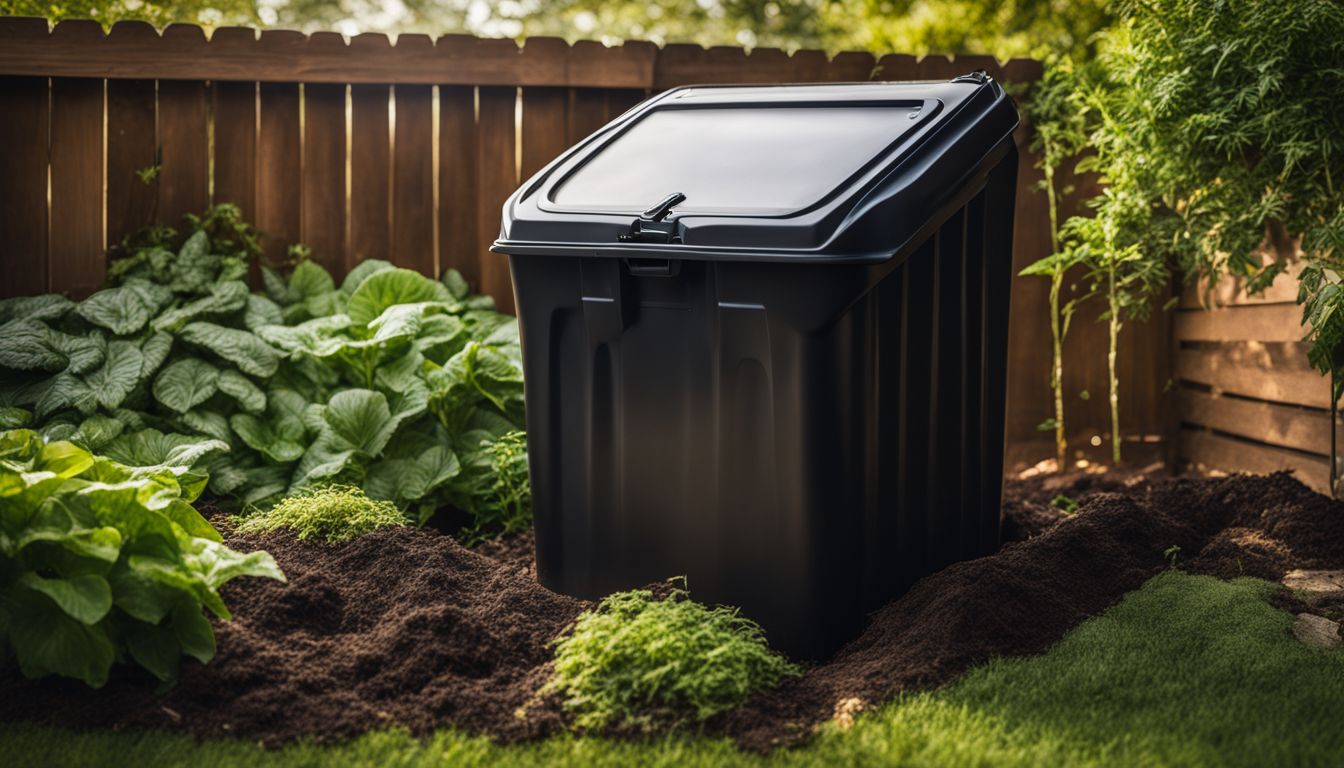
Compost bins can attract rodents due to the presence of rotting food, shelter, and nesting opportunities.
Reasons why compost bins may attract rodents

Compost bins may draw in rodents for many reasons. Here are some:
- Rodents feast on the food scraps added to compost bins.
- Compost piles offer cozy nests for rats and mice.
- The warmth of a compost heap is an inviting shelter, especially in winter.
- Adding meat or dairy products to compost might call out to rats.
- If compost contains rotting food, it can become a meal source for pests like rats.
- A pile with dried materials such as leaves and straw may seem appealing to rats.
- Leaving compost open allows easy access for animals such as pests and rodents.
Common types of rodents attracted to compost bins
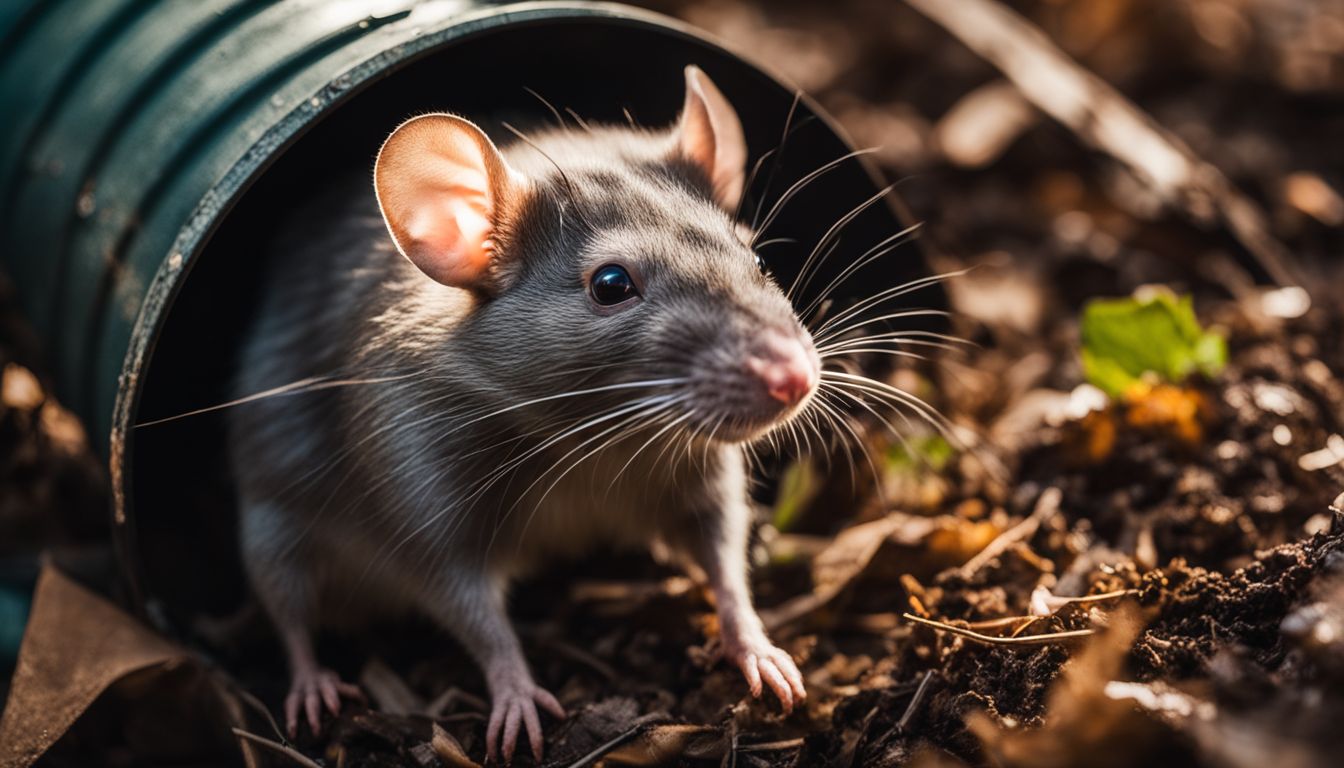
Rodents such as mice and rats are commonly attracted to compost bins. They can find food, shelter, and a place to nest in these compost piles. The rotting food in the compost provides a source of nutrition for them. It’s important to manage the compost properly to prevent attracting these rodents. Using rodent-proof compost bins and keeping the compost area clean can help deter them from coming near the bins. Additionally, removing any rotting food from the compost can reduce their attraction.
How to Prevent Rodents from Being Attracted to Compost Bins
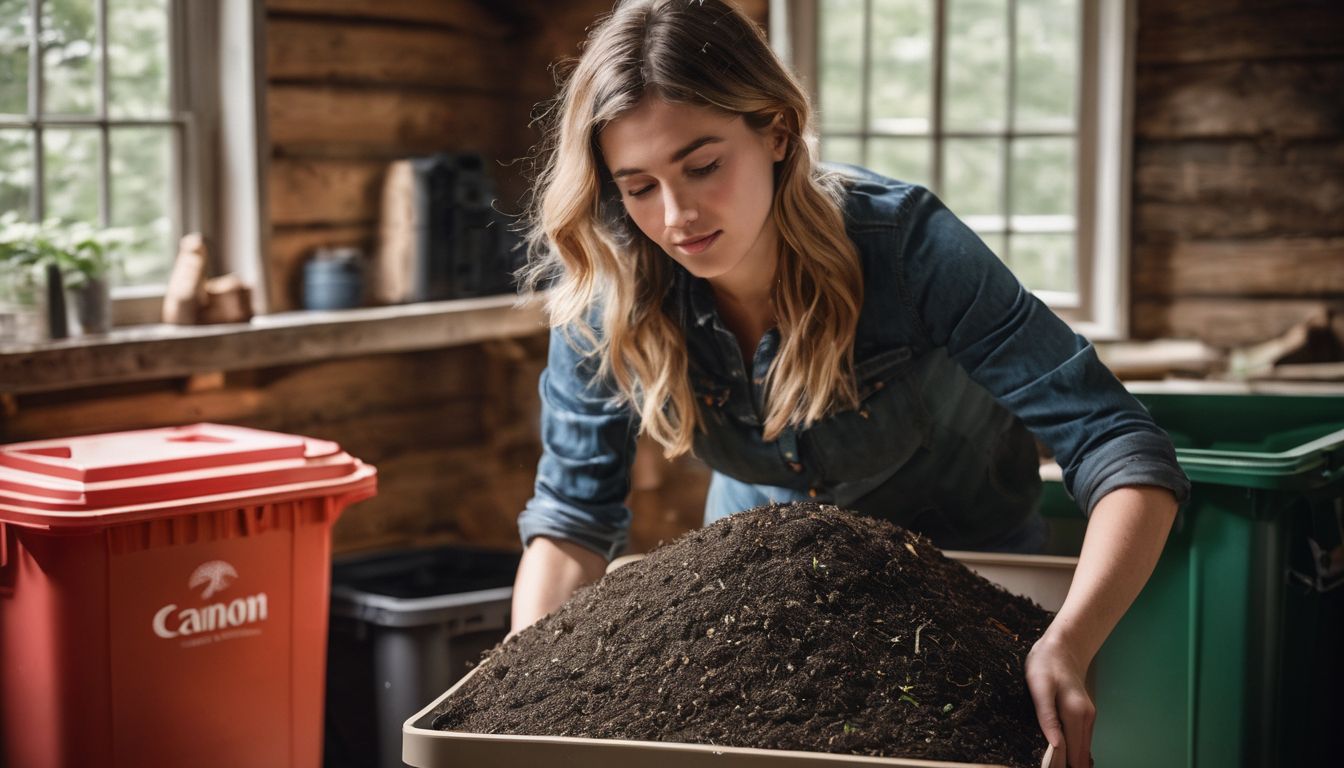
To prevent rodents from being attracted to compost bins, it is important to practice proper compost management techniques, use rodent-proof compost bins, and keep the compost bin area clean and free of food waste.
Proper compost management techniques
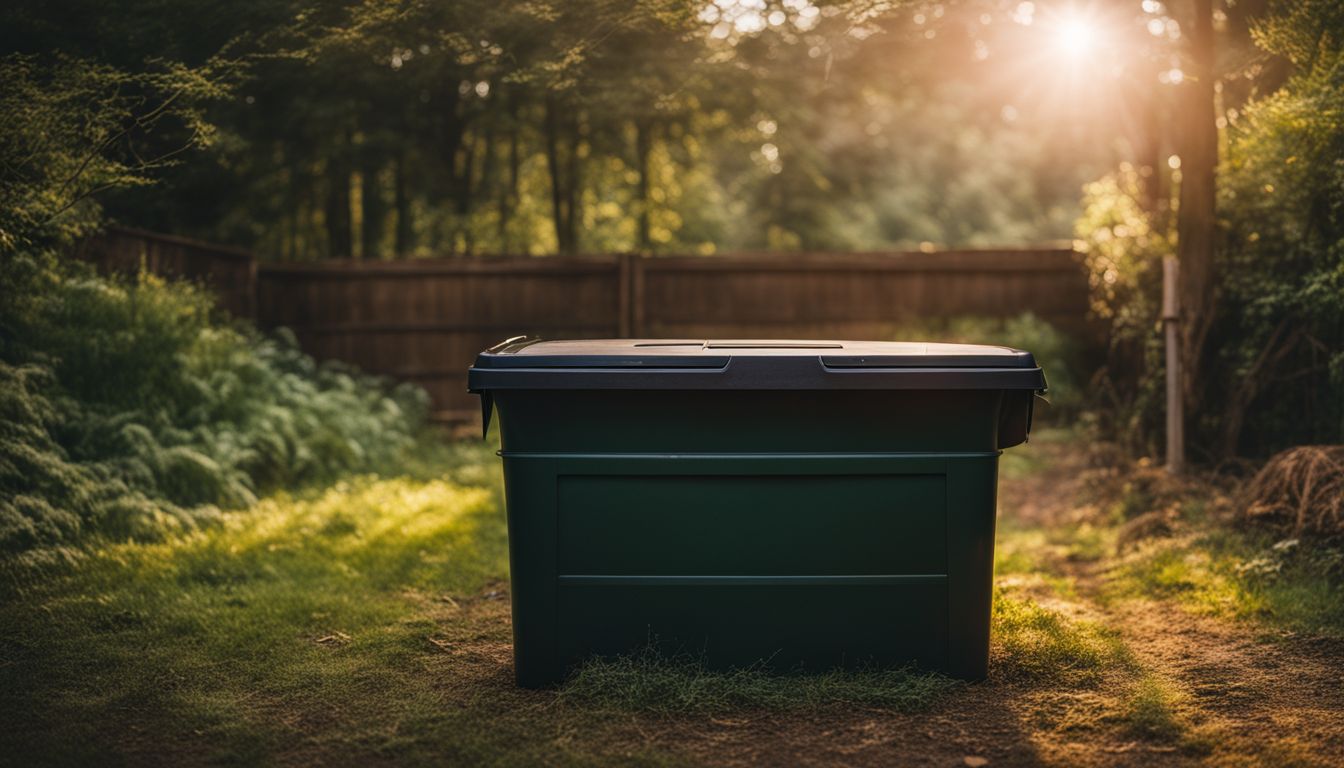
Proper compost management techniques are important to prevent rodents from being attracted to compost bins. Here are some tips:
- Use a closed or sealed compost bin: This will prevent rodents from accessing the compost and nesting inside.
- Avoid adding meat and dairy products: These can attract rats, so it’s best to exclude them from your compost pile.
- Layer your compost properly: Alternate between green materials (such as fruit and vegetables scraps) and brown materials (like leaves or straw). This helps maintain the right balance in your compost and reduces the chances of attracting rodents.
- Turn your compost regularly: Regularly turning the compost helps speed up decomposition and discourages rodents as they prefer undisturbed areas.
- Cover your food waste with dry materials: Adding a layer of dry leaves or straw on top of food waste can help mask the smell and deter rodents.
- Keep the area around the compost clean: Ensure that there are no spillages or food waste lying around near the bin, as this can attract rodents even if they don’t have access to the actual compost.
Using rodent-proof compost bins
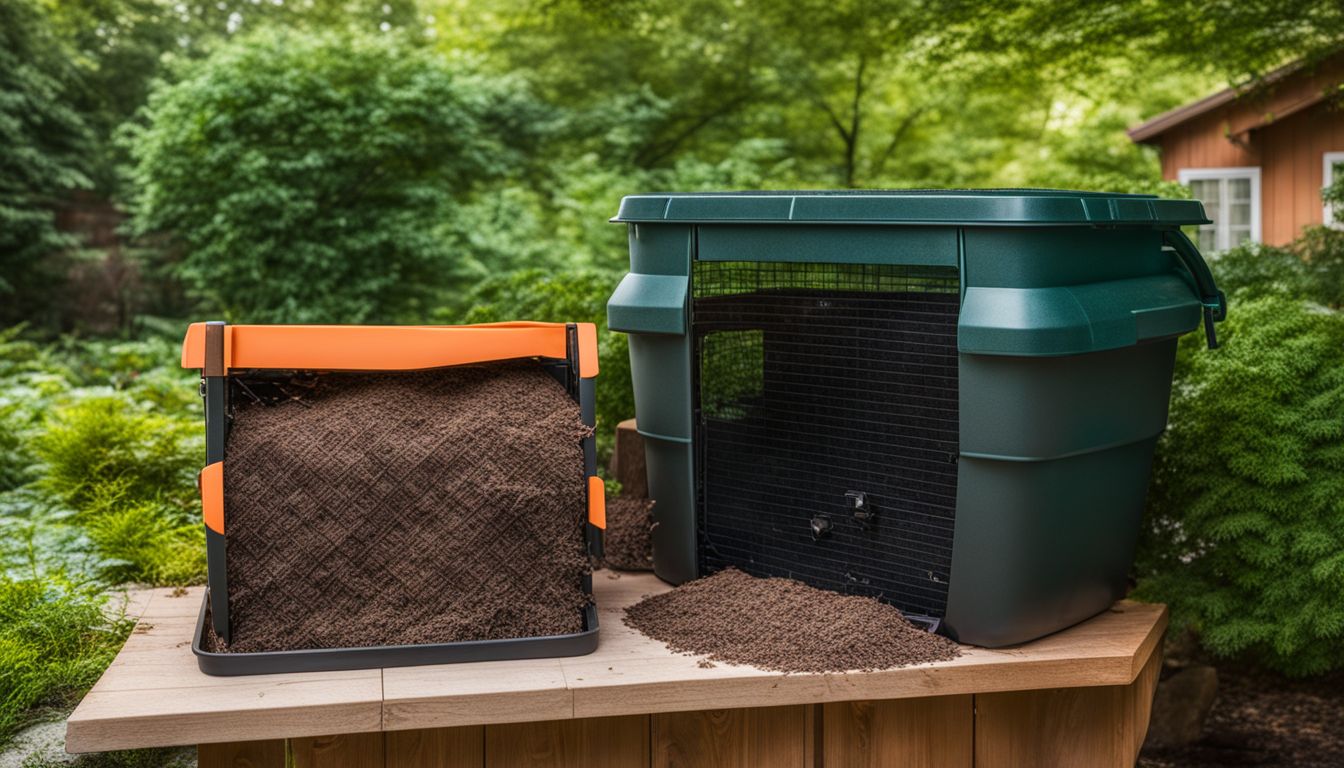
Rodent-proof compost bins are an effective way to prevent rodents from being attracted to your compost. These specialized bins are designed with tight-fitting lids and sturdy construction to keep rats and mice out.
By using a rodent-proof bin, you can ensure that the compost remains inaccessible to these pests, reducing the risk of them finding food, shelter, and nesting opportunities in your compost pile.
It is important to choose a bin that is made of durable materials and has no gaps or openings where rodents can squeeze through. With a rodent-proof compost bin, you can enjoy the benefits of composting without worrying about attracting unwanted critters.
Keeping the compost bin area clean and free of food waste
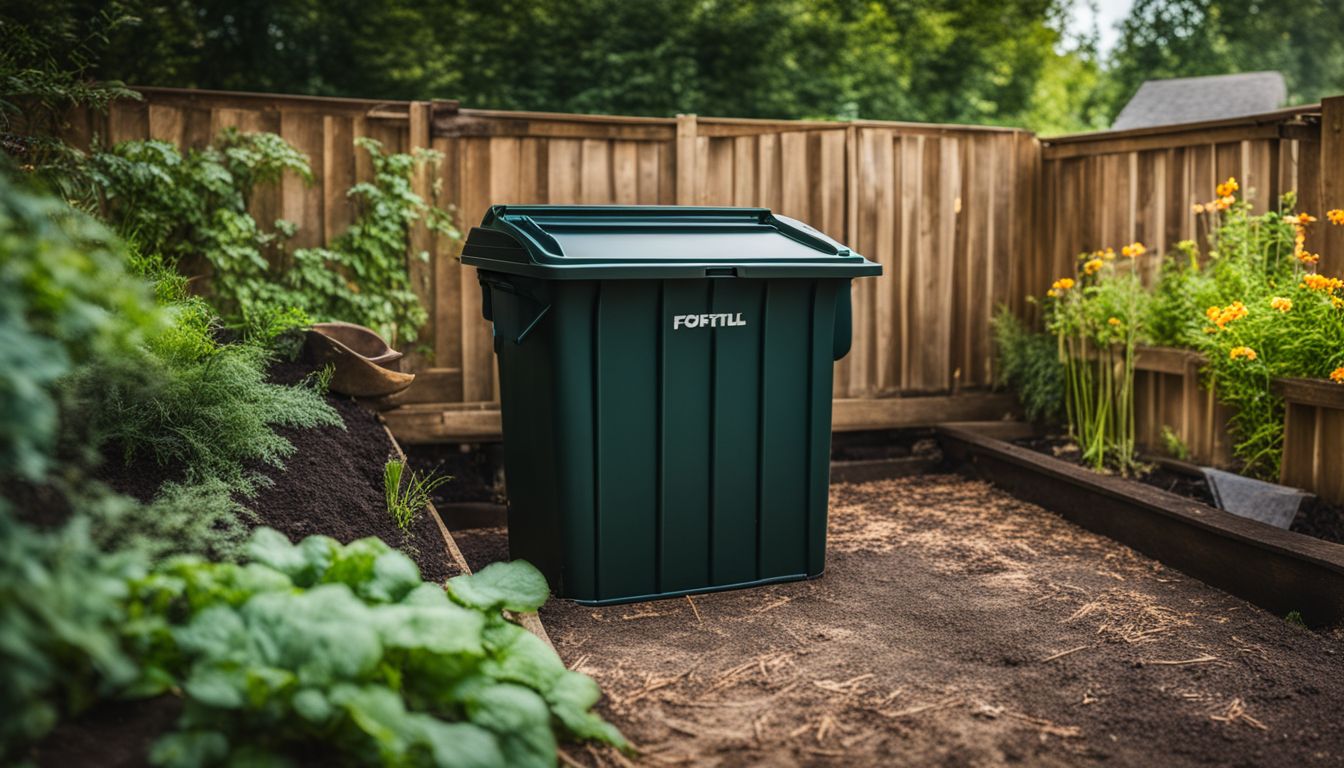
To prevent rodents from being attracted to your compost bin, it is important to keep the area clean and free of food waste. Rodents are drawn to the smell of rotting food, so make sure you only add appropriate materials to your compost pile.
Avoid adding meat and dairy products, as these can attract rats. Additionally, regularly turn and mix your compost to aerate it and speed up decomposition. This will help reduce odors and discourage rodents from making a home in your compost bin.
By keeping the area clean and properly managing your compost, you can minimize the risk of attracting rodents.
Dealing with Rodents in Compost Bins
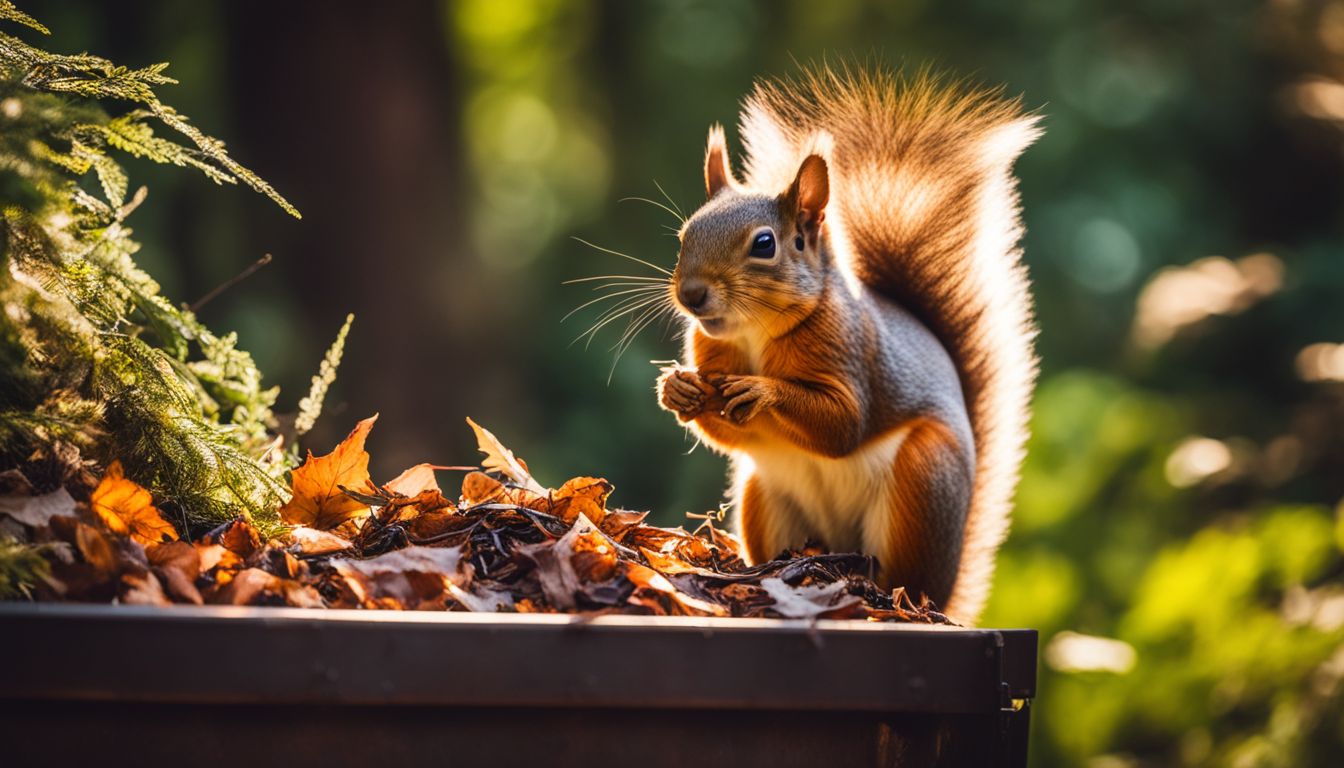
Remove rodents from compost bins using safe and humane methods, such as trapping and relocating them away from the area.
Safe and humane methods for removing rodents from compost bins
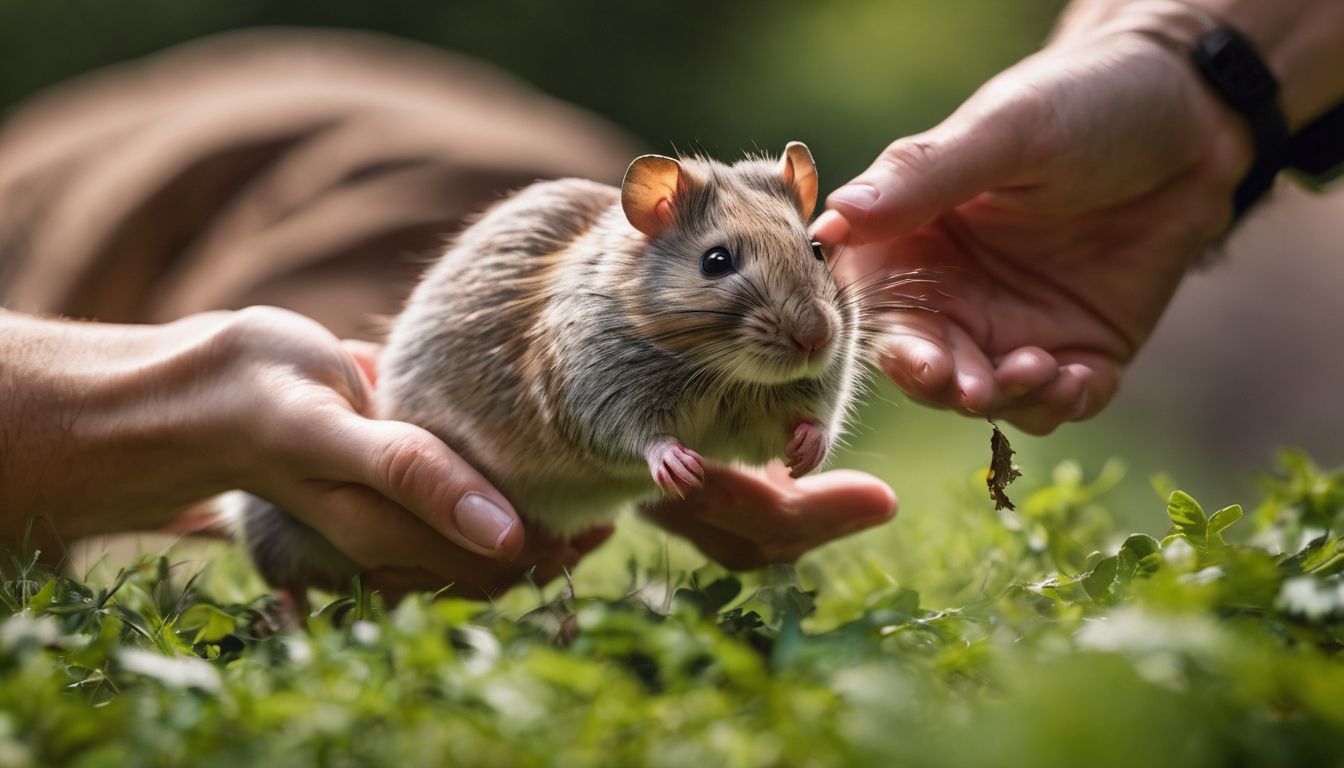
- Set up traps specifically designed for catching rodents in and around the compost bin.
- Use live traps to capture rodents and release them far away from your property.
- Install a mesh barrier around the compost bin to prevent rodents from accessing it.
- Keep the compost bin tightly sealed to make it less accessible to rodents.
- Regularly remove any accumulated debris or overgrown vegetation around the compost bin, as they can provide hiding places for rodents.
- Avoid using poisons or harmful chemicals to eliminate rodents, as these can be dangerous for other wildlife and pets.
- Place deterrents such as strong – smelling herbs or predator urine near the compost bin to discourage rodents from approaching.
Using deterrents and natural repellents
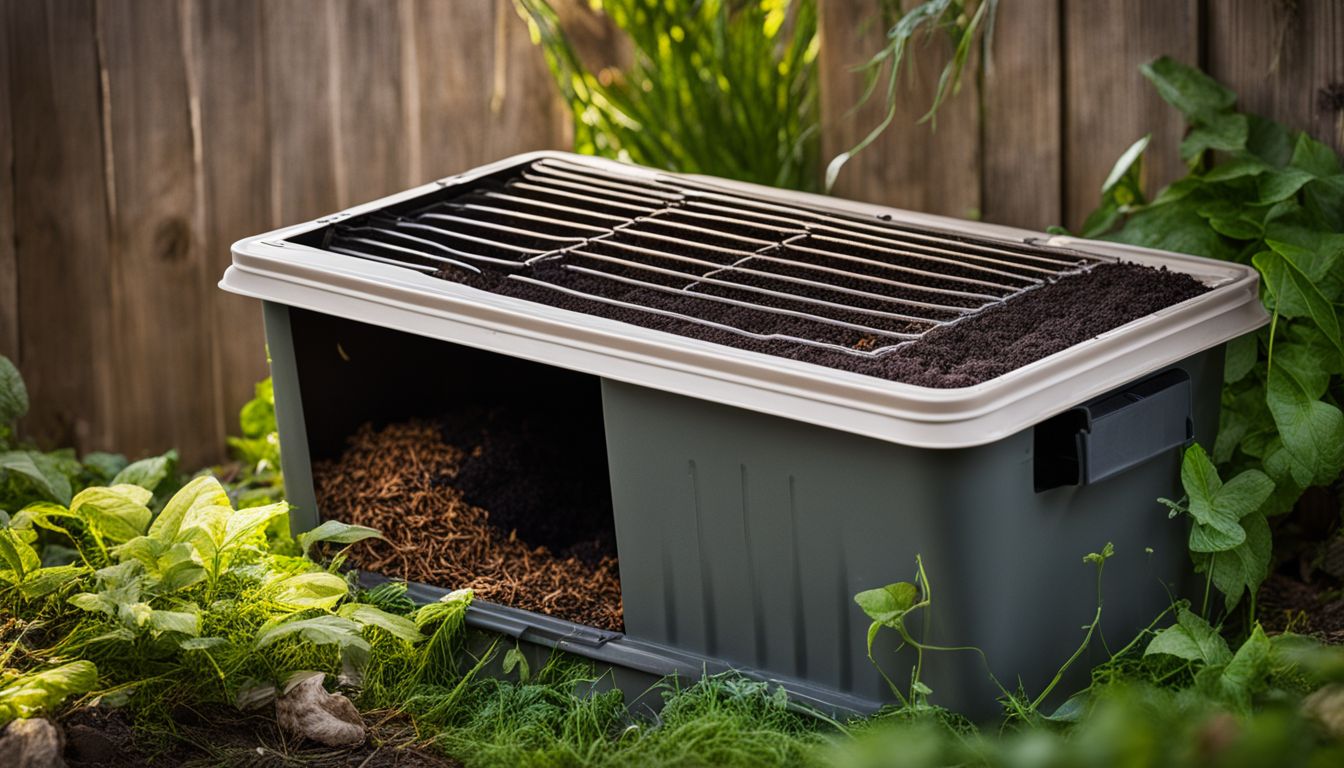
Deterrents and natural repellents can help keep rodents away from your compost bins. Here are some effective methods to consider:
- Secure the compost bin: Use a rodent-proof compost bin with tight-fitting lids. This will prevent rodents from accessing the food scraps inside.
- Remove attractants: Avoid adding meat, dairy products, and oily foods to your compost pile, as these can attract rats. Stick to plant-based materials and avoid sweet items like fruit peels or sugary leftovers.
- Keep it covered: Always cover your fresh food scraps with a layer of dry leaves or straw. This will help reduce odors that may attract rodents.
- Add deterrents: Sprinkle natural deterrents around the perimeter of your compost bin, such as freshly grated citrus peel, mint leaves, or crushed garlic cloves. Rodents dislike these strong smells and may be deterred from approaching.
- Maintain cleanliness: Regularly clean around the compost bin area to remove any spilled food scraps or debris that could attract rodents.
Common Myths about Composting and Rodents

Addressing misconceptions about composting and rodent attraction can help dispel fears and encourage responsible composting practices.
Addressing misconceptions about composting and rodent attraction
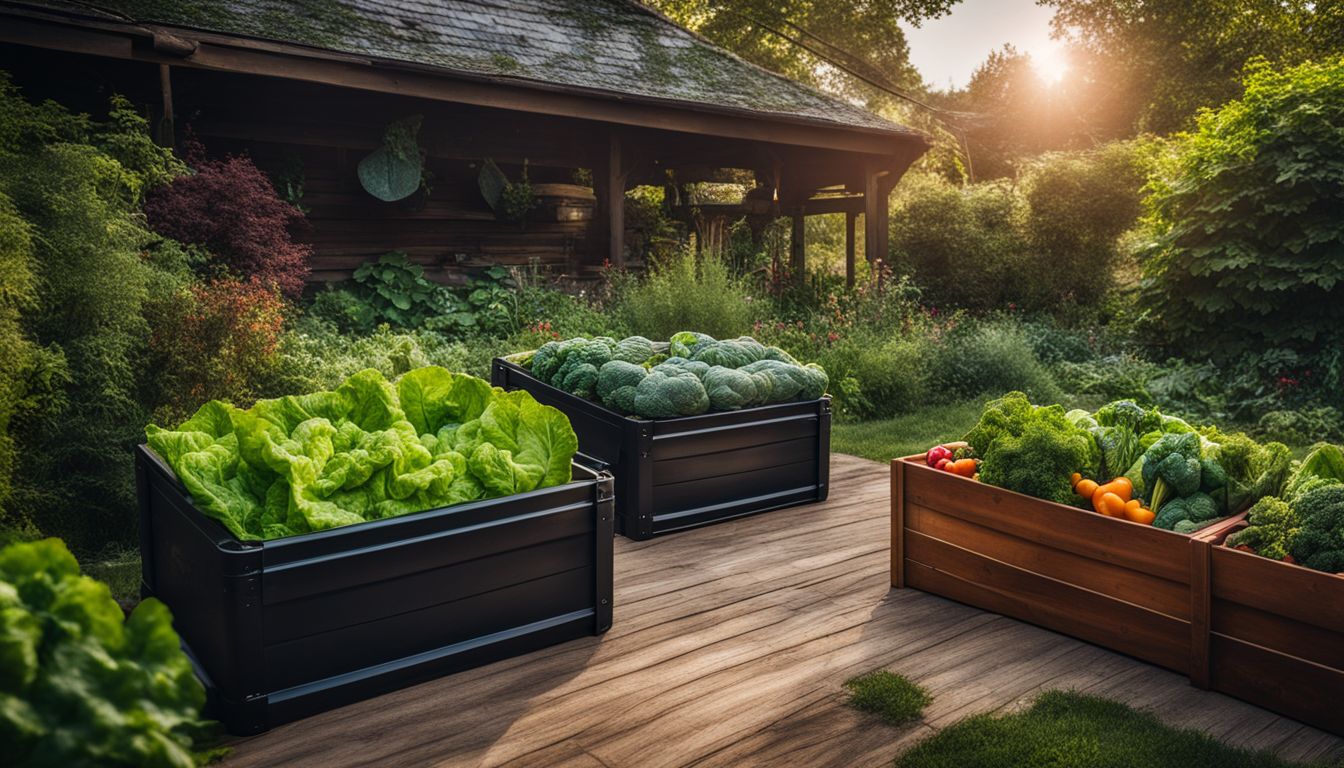
There are some misconceptions about composting and its attraction to rodents that need to be addressed. One common misconception is that rats are attracted to compost because they want to eat the compost itself.
However, rats are actually attracted to the added food scraps in the compost, not the compost itself. It’s important to note that meat and dairy products should not be added to a compost pile as they can attract rats.
Another misconception is that if your compost contains eggshells or manure, it will automatically attract rats. This is not necessarily true. Eggshells in compost do not attract rats, and while manure used in compost can potentially attract them, it doesn’t always happen.
The key factor in attracting or deterring rodents from your compost pile lies more with how you manage it – avoiding rotting food and ensuring there is no accessible shelter for them.
Conclusion: The Benefits of Composting and Responsible Rodent Management

Composting can attract rodents if not properly managed. Food scraps and rotting food in compost piles can provide a source of food, shelter, and nesting for rats and mice. However, by following proper compost management techniques, using rodent-proof bins, and keeping the area clean, we can prevent rodents from being attracted to compost bins.
It is important to find a balance between responsible composting practices and managing rodent infestations to enjoy the benefits of composting while minimizing any potential issues with rodents.
FAQs
1. Will composting attract rodents like rats and house mice?
Yes, composting can attract rodents if not done right. They are drawn to the organic waste in your garden compost pile for food and shelter.
2. How can I prevent rodent infestation when composting?
You can prevent rodent access by using proper pest management strategies like rat repellent, maintaining your compost pile regularly, and following safe composting practices.
3. Can a poor maintained compost heap invite more pests?
Yes! A poorly managed pile may breed pests aside from attracting rodents along fencelines which could cause possible damage to your property.
4. What is a good way to do pest control while I am doing organic waste management?
To control pests during organic waste management, adopt rodent prevention methods such as secure enclosures around your heap or use of garden pest control products.
5. Are there any risks tied to having rodents around my home due to poor handling of my compost pile?
Rodents carry diseases which they could spread around if attracted by improperly handled piles; hence it’s crucial we stick to prescribed guidelines for safe and effectual garden composing.

As a dedicated mother and passionate software developer, she weaves her diverse experiences into captivating stories that inspire and engage readers. Emma's love for sustainable living and environmental consciousness permeates both her personal and professional life. When she's not immersed in the world of coding and software development, Emma can be found nurturing her family and tending to her thriving organic garden. Her commitment to sustainable practices extends to every aspect of her life, from repurposing household items to embracing eco-friendly technologies.










